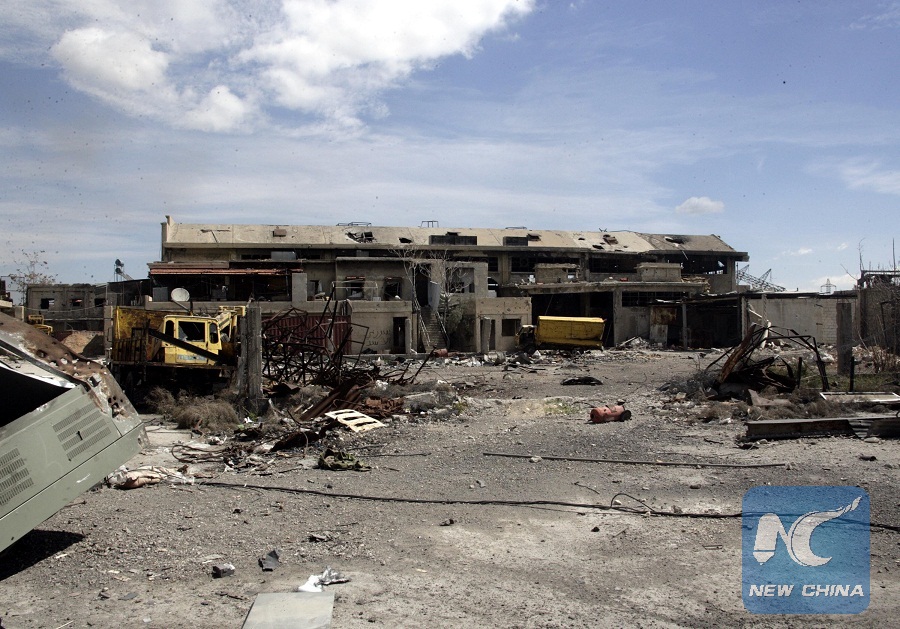
Photo taken on March 20, 2017 shows a scene of destruction at the Abassyieen bus station in the east of Damascus, capital of Syria. (Xinhua/Ammar Safarjalani)
THE HAGUE, April 29 (Xinhua) -- The Islamic State (IS) foreign fighters returning from Syria to their countries of origin could carry out chemical weapons attacks after learning how to use the toxic substance in the battle zones, Director-General of the Organisation for the Prohibition of Chemical Weapons (OPCW) Ahmeet Uzumcu warned on Friday.
"The threat of chemical terrorism is a major concern especially after what happened in Syria and Iraq where ISIS has been identified as one of the perpetrators of sulphur mustard gas attacks, while there have also been some more recent allegations attributed to ISIS," said Uzumcu at a round-table with foreign press at the headquarters of the OPCW.
"We fear that foreign fighters may get back to their countries of origin with the know-how of production and use of such weapons," he said.
"We receive some information from our states parties, which rather confirms the seriousness. So far in the terrorist activities in several European countries other weapons were used, but they don't throw out the possibility that chemical or other non-conventional means could also be used," the OPCW chief expressed the worries.
The OPCW called upon its member states to issue recommendations for necessary measures, while it keeps its Rapid Response Assistance Mission ready to deploy at short notice to any of its 192 member states upon request.
"Most European countries have some preparedness individually but also through institutions like NATO and the EU to respond, but other countries do not have responsiveness to react," he explained.
The OPCW chief noted that since 2013 the number of cases of alleged use of chemical weapons has increased significantly, with 45 alleged incidents reported since late 2016, all in Syria.
Uzumcu called upon the state members of the organization to strengthen the global norm established by OPCW by "enforcing the provisions of the organization."
According to the OPCW, 95 percent of chemical weapon stockpiles declared by possessor states have already been eliminated.
"Russia is likely to complete destruction by next year, while the United States in five to six years," said Uzumcu.
Saturday marks the 20th anniversary of the entry into force of the Chemical Weapons Convention (CWC) and the founding of the OPCW.
The OPCW, Nobel Peace Prize laureate in 2013, now has 192 member states representing 98 percent of the global population.

